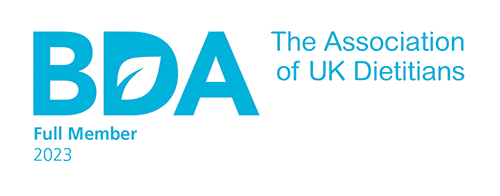Coeliac Awareness Week 14-20th May 2018
What is Coeliac Disease?
NHS Choices provides a comprehensive outline of what coeliac disease is, the symptoms, diagnosis and treatment.
Coeliac UK provide comprehensive information regarding the gluten free diet.
This short article covers some of the more obscure questions about coeliac disease and the gluten-free diet.
Incidence of Coeliac Disease
According to Coeliac UK, 1 in 100 people have coeliac disease.
Across the UK, only 24% of people have been diagnosed.
Here in Northern Ireland, the diagnosis rate is higher at 39% (as per 2014 data). However this also means 61% are undiagnosed – SO OVER 11,000 PEOPLE IN NORTHERN IRELAND DON’T YET KNOW THEY HAVE COELIAC DISEASE.
Who should get checked for coeliac disease?
See your GP for a coeliac screen if you have:
- the common symptoms
- a first degree relative (parent, sibling, child) with coeliac disease.
Non-coeliac gluten sensitivity
If you experience the symptoms of coeliac disease but testing has excluded this diagnosis, you may have non-coeliac gluten sensitivity. Your symptoms will improve on a gluten free diet. This is an emerging area of research and you can find out more at Coeliac UK.
Irritable Bowel Syndrome (IBS)
There is overlap between the symptoms of coeliac disease, non-coeliac gluten sensitivity and IBS.
- Treatment for coeliac disease and non-coeliac gluten sensitivity is a gluten free diet.
- Treatment for IBS is often the low FODMAP diet.
The low FODMAP diet coincidently excludes many gluten sources. So if you feel better, it’s impossible to know whether that is because of reducing FODMAPs or cutting out gluten.
No condition can be managed well without knowing what is causing the problem.
Get the diagnosis right, and the right treatment will follow.
I’ve cut out gluten already – can I still test for coeliac disease?
No – coeliac disease cannot be diagnosed if you have been avoiding foods containing gluten.
- NICE (National Institute of Health and Care Excellence) advise that before being tested, people need to follow a diet containing gluten for at least 6 weeks.
- Coeliac UK recommend “to eat some gluten in more than one meal every day for at least 6 weeks before testing”.
What is not helpful is that no specific advice is given regarding quantity – “some” does not suggest the need for large amounts so eating a bowl of gluten containing cereal and a slice of gluten containing bread may be sufficient, provided this is included daily over the recommended 6 week period.
This reinforces the importance of being tested for coeliac disease BEFORE avoiding gluten.
Should I use a home testing kit?
That depends on your reason for doing so.
If you’re considering a gluten free diet for general health reasons, and have no troublesome symptoms or signs of coeliac disease, then a negative result from a home testing kit may give you some re-assurance that should you occasionally, or accidently, eat a gluten containing food you will not be causing any gut damage.
If the home test kit suggests a positive coeliac outcome, see your GP for a formal test BEFORE you proceed to cutting out gluten.
If you have suspicions that you may have coeliac disease, it is in your best interests to take advantage of the full range of support available on the NHS. You will have annual review of your symptoms, blood retests, and access to other services if required – for example, scans to check bone density.
If you self-diagnosis and self-manage, you may be inadvertently overlooking other problems.
Take home messages
Are you one of the undiagnosed 11,000? See your GP. Get tested.
Does your parent, sibling or child have coeliac disease? See your GP. Get tested.
Thinking of trying a gluten free diet? If you have any suspicions that gluten may be causing a problem…See your GP. Get tested.


